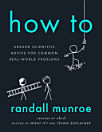Think Black: A Memoir
About this ebook
–Publisher’s Weekly (Starred)
“A masterful storyteller, Ford interweaves his personal story with the backdrop of the social movements unfolding at that time, providing a revealing insider’s view of the tech industry. . . simultaneously informative and entertaining. . . A powerful, engrossing look at race and technology.”
–Kirkus Review (Starred)
In this thought-provoking and heartbreaking memoir, an award-winning writer tells the story of his father, John Stanley Ford, the first black software engineer at IBM, revealing how racism insidiously affected his father’s view of himself and their relationship.
In 1947, Thomas J. Watson set out to find the best and brightest minds for IBM. At City College he met young accounting student John Stanley Ford and hired him to become IBM’s first black software engineer. But not all of the company’s white employees refused to accept a black colleague and did everything in their power to humiliate, subvert, and undermine Ford.
Yet Ford would not quit. Viewing the job as the opportunity of a lifetime, he comported himself with dignity and professionalism, and relied on his community and his "street smarts" to succeed. He did not know that his hiring was meant to distract from IBM’s dubious business practices, including its involvement in the Holocaust, eugenics, and apartheid.
While Ford remained at IBM, it came at great emotional cost to himself and his family, especially his son Clyde. Overlooked for promotions he deserved, the embittered Ford began blaming his fate on his skin color and the notion that darker-skinned people like him were less intelligent and less capable—beliefs that painfully divided him and Clyde, who followed him to IBM two decades later.
From his first day of work—with his wide-lapelled suit, bright red turtleneck, and huge afro—Clyde made clear he was different. Only IBM hadn’t changed. As he, too, experienced the same institutional racism, Clyde began to better understand the subtle yet daring ways his father had fought back.
Ratings and reviews
About the author
Clyde W. Ford is the author of fifteen works of fiction and nonfiction, and is a psychotherapist, an accomplished mythologist, and a sought-after public speaker. In 2006, Ford received the Zora Neale Hurston/Richard Wright Award in African American fiction. In 2019, he was named a finalist for the Hurston/Wright Award in African American nonfiction. In 2021, Clyde received the prestigious Washington Center for the Book Award, the Nautilus Book Award in Social Justice, and was a finalist for the Goddard-Russo Prize in Social Justice for Think Black. Clyde was honored as a "Literary Lion" by the King County Library System in 2006, 2007, 2008, and 2019. He was voted "Best Writer of Bellingham, Washington" in 2006 and 2007 by readers of Cascadia Weekly and received the 2007 Bellingham Mayor's Arts Award in Literature. Ford is currently a speaker for Humanities Washington, an affiliate of the NEA, where he presents a program entitled, "Technology, Race and Social Justice," around the state. He is also the Director of the Martin Luther King, Jr. Library Publishing Project at HarperCollins. Clyde has participated in hundreds of media interviews and has appeared on the Oprah Winfrey Show, New Dimensions Radio, and NPR. He lives in Bellingham, Washington, where he founded the city’s annual Martin Luther King Day commemoration in 1991, and enjoys walking the mountains and cruising the waters of the Pacific Northwest.





